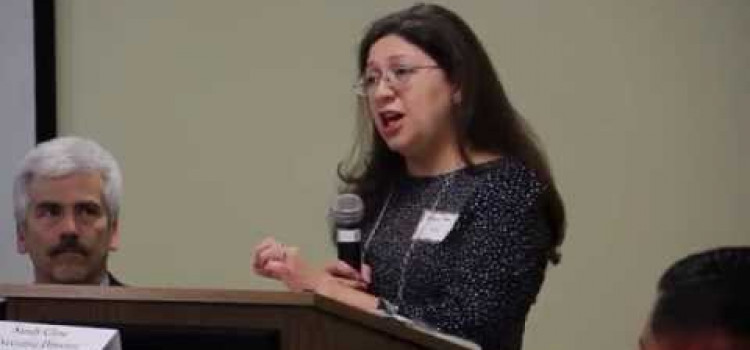

It often begins with a single phone call.
Someone calls you posing as the Internal Revenue Service (IRS), threatening you with arrest if you don’t pay your “debt.” It could also be a fake medical biller, a rogue immigration attorney, or even a package delivery person who never makes the delivery.
Stories like these are the ones that victims shared on Tuesday during a press conference on scams, co-hosted by the Federal Trade Commission (FTC) and New America Media.
The FTC receives roughly about a million complaints of fraud a year, according to FTC Regional Director, Thomas Syta.
“It’s not really possible for us to go and investigate every single case… but the complaints that come in help educate us at which claims we should be looking at,” Syta said.
The FTC is expanding outreach to educate low-income persons and communities of color about the scams lurking about, as part of its Every Community Initiative. It is geared towards providing information and resources to communities cut off from the FTC’s regular press alerts.
“There’s trillions of dollars of commerce involved in non-English speaking communities and we want to make sure they don’t fall trough cracks of our general outreach,” Syta said.
The effort comes in good timing as experts suspect many immigration scams will be on the rise in the aftermath of President Obama’s Deferred Action for Parents of Americans and Lawful Permanent Residents (DAPA) announcement. DAPA, announced in November, will provide work permits and deportation relief to undocumented immigrants who qualify.
Alba Montoya is a victim of immigration service fraud. Liberty Immigration Group had called Montoya, saying they would help her husband attain a green card. She then visited the group’s office and paid $2,500 for assistance. But the services never went through and Montoya’s subsequent phone calls to their office went unanswered.
When she visited the office site in person, she saw that they had shut down. They were gone.
Scamming operations tend to pack up and move on before victims can recuperate their losses, said Lt. Al Labrada, Community Outreach Liaison for the LAPD. “A lot of that money changes hands overseas, which makes it much more difficult for us jurisdiction-wise to go after that money,” Labrada said.
“I lost $2,500 and my husband is still without papers,” Montoya said. “They don’t have conscience about the sacrifice we made to get the money, and they took it so easily.”
Though Montoya never reported the incident, the FTC encourages all victims to report their complaints to the FTC every time they fall victim to a scam, and reassures complainants that they need not disclose their immigration status when they file a complaint.
“Regardless of immigration status, we are here to protect the consumers; we are here to protect the public,” said Carina Franck, legislative liaison for the State Bar of California. “Unfortunately, there are people in the community, including attorneys, who are preying upon our hard-working immigrant families,” Franck said.
The FTC
What makes Latinos so susceptible to immigration scams is that many scammers describe themselves as “notarios,” commonly known in Latin America as attorneys. But many posing here as “notarios” may not be attorneys at all.
“Families believe they are paying their hard-earned dollars to a licensed attorney,” Franck said. Not all of the major scams occurring in communities of color are immigration-related.
Luis Serrano and his wife had to travel to their native El Salvador for a family emergency. They spent $1,200 in credit to buy plane tickets from an agency. After the purchase, they discovered there was no reservation for them on the plane.
“It was a very difficult problem because my wife is the only one who works. I am disabled and I live off social security pensions,” Serrano said. The agency’s office has since shut down, but Serrano’s family is still paying off the tickets.
Tips
:
If you receive a threatening or suspicious phone call, and it involves money, talk to someone about it. Experts find that most people do not fall for scams if they have the opportunity to talk with another person about the scam before paying the scammer.
“It almost didn’t matter who that someone else was… there’s something about speaking about it,” said Monica Vaca, Assistant Director with the FTC’s Bureau of Consumer Protection.
Don’t wire money to people you don’t know. Wiring money is almost like using real money.
“If you wire money… that money has gone somewhere and it’s almost impossible to get it back,” said Syta. “I recommend only doing that to people that you really know.”
In order to file a complaint with the FTC, call 1-877-382-4357 or go to www.ftccomplaintassistant.gov/.
